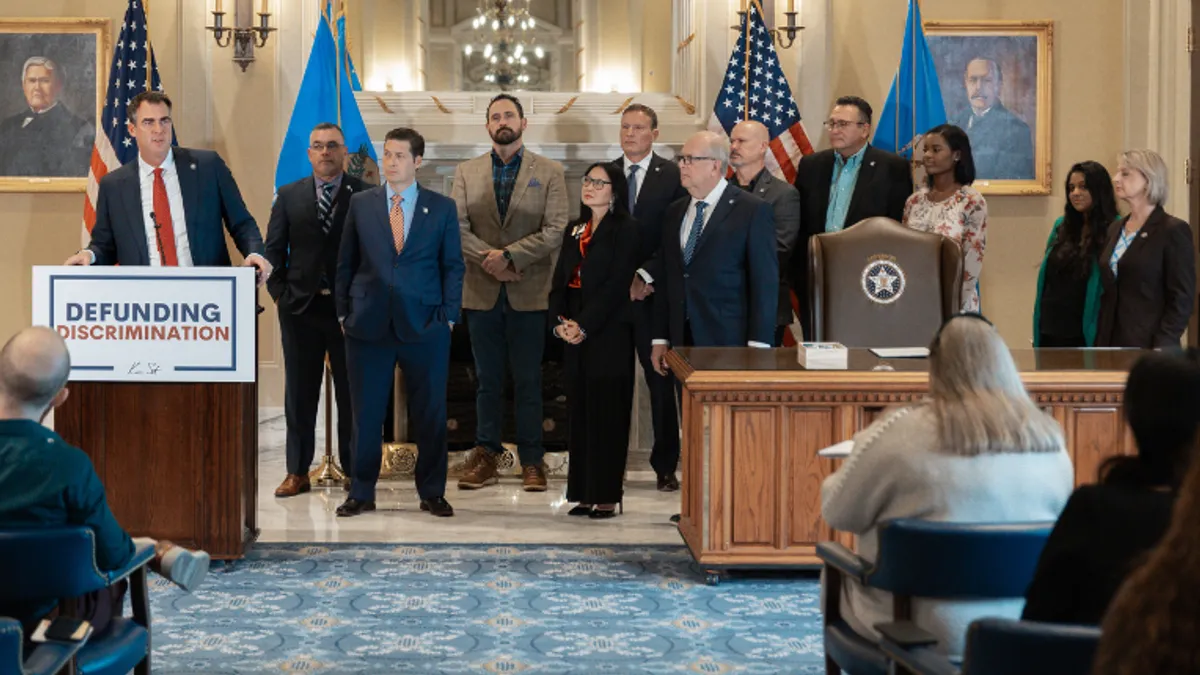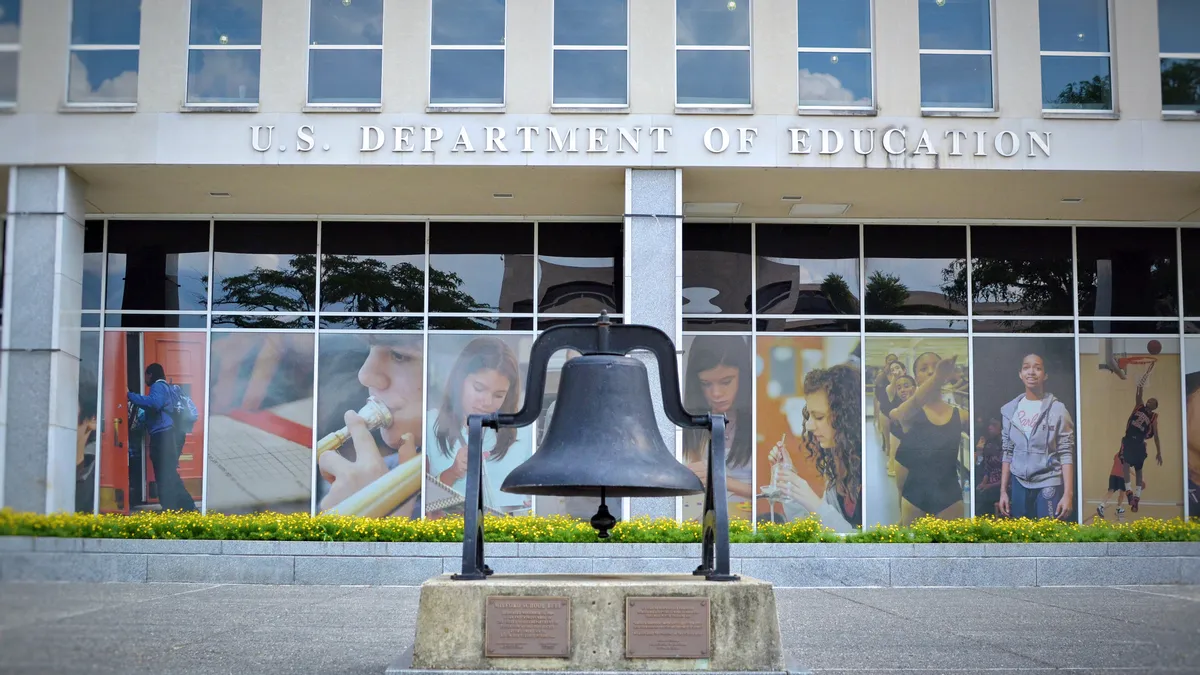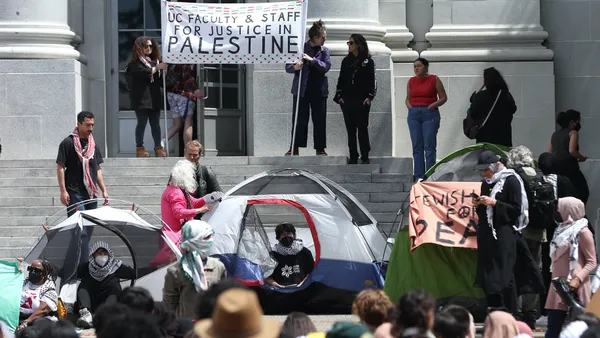Dive Brief:
- Oklahoma Gov. Kevin Stitt on Wednesday ordered the state’s public colleges to review all diversity, equity and inclusion-related programs and jobs, a bellwether for policymakers banning DEI initiatives entirely.
- Public colleges must comply with the executive order by the end of May 2024. They must review all DEI programs and if needed, eliminate those “not necessary for compliance, accreditation, or student and employee support services intended to support success broadly.”
- Public colleges must draft a report to policymakers by no later than May 2024 detailing which DEI positions and activities were changed or nixed as a result of the order. The Oklahoma State Regents for Higher Education will comply with the governor’s order, spokesperson Angela Caddell said in an email Wednesday. “We will continue to focus on supporting all Oklahoma students as they pursue college degrees and prepare to join our workforce,” Caddell said.
Dive Insight:
DEI programs in part intend to acknowledge that colleges have not done enough to support historically marginalized groups.
However, Republicans nationwide have demonized colleges’ DEI ventures, contending such programs inspire division and guilt students about historical events, like slavery, in which they played no part. Texas and Florida passed laws this year blocking DEI funding in public colleges.
Stitt said during a news conference Wednesday that he wanted the state’s colleges to focus solely on preparing students for the workforce. Institutions should stop spending major cash on diversity programs and “take politics out of education,” Stitt said.
“Let’s get back to basics and stop trying to divide Oklahomans,” he said.
The order does not bar diversity work in academic courses, research, activities by a student organization and for data collection.
During the press conference, the governor referenced the U.S. Supreme Court decision this summer that struck down race-conscious admissions. Stitt said the high court had ruled against racial discrimination, and that the country should turn now to accepting students into college exclusively based on merit.
While the June decision applied only to admissions, some colleges and policymakers have reasoned they should also drop scholarships and other programs that benefit students of certain racial groups. Soon after the ruling, the University of Missouri System said it would no longer factor race and ethnicity into scholarship decisions.
Stitt stressed that colleges should still support vulnerable students, especially those who are first in their family to attend.
“We see all Oklahomans as equal, regardless of race, color, sex, ethnicity or national origin,” he said.














